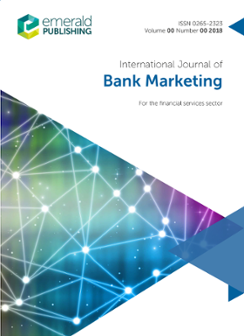Integrating ISS and SOR models to investigate the determinants of continuance intention toward using m-payment for donations (Sadaqah): the moderating role of Islamic religiosity
IF 6.3
3区 管理学
Q1 BUSINESS
引用次数: 0
Abstract
PurposeDespite the significance of donations (Sadaqah) via mobile payment in Islamic countries, little is known about the variables influencing continuance intention toward using m-payment for donations (Sadaqah). Based on the stimulus-organism-response (S-O-R) model, this research explores the influence of perceived quality (i.e. system, information, service) as a stimulus on customer satisfaction, engagement and delight as organisms, which then affects continuance intention toward using m-payment for donations (Sadaqah) as a response. Moreover, the study investigates the moderating role of Islamic religiosity.Design/methodology/approachUsing partial least squares structural equation modeling (PLS-SEM), a representative data sample of 419 Egyptian Muslims was analyzed to test hypotheses.FindingsThe findings revealed that all perceived quality constructs significantly positively affect customers' satisfaction. Customer satisfaction, in turn, positively affects customer engagement and delight. Moreover, customer engagement, delight and Islamic religiosity significantly positively affect continuance intention toward using m-payment for donations (Sadaqah). The findings also revealed that Islamic religiosity moderates the influence of customer engagement and customer delight on continuance intention toward using m-payment for donations (Sadaqah).Originality/valueThis is the first study to examine using m-payment for donations (Sadaqah) in an Islamic environment based on the S-O-R model.整合ISS和SOR模型,调查使用移动支付捐款的持续意向的决定因素(萨达卡):伊斯兰宗教信仰的调节作用
目的尽管在伊斯兰国家通过移动支付进行捐赠(Sadaqah)具有重要意义,但对影响继续使用移动支付进行捐款(Sadakah)意愿的变量知之甚少。基于刺激-有机体反应(S-O-R)模型,本研究探讨了感知质量(即系统、信息、服务)作为刺激对作为有机体的客户满意度、参与度和愉悦感的影响,进而影响使用移动支付捐款(Sadaqah)作为反应的持续意向。此外,本研究还调查了伊斯兰宗教信仰的调节作用。设计/方法/方法使用偏最小二乘结构方程建模(PLS-SEM),对419名埃及穆斯林的代表性数据样本进行分析,以检验假设。调查结果显示,所有感知质量结构都显著正向影响客户满意度。反过来,客户满意度会对客户的参与度和满意度产生积极影响。此外,客户参与度、愉悦感和伊斯兰宗教信仰显著正向影响使用移动支付进行捐赠的持续意愿(Sadaqah)。研究结果还表明,伊斯兰宗教信仰调节了客户参与度和客户满意度对使用移动支付捐款(Sadaqah)的持续意向的影响。独创性/价值这是第一项基于S-O-R模型研究在伊斯兰环境中使用移动支付捐款(Sadakah)的研究。
本文章由计算机程序翻译,如有差异,请以英文原文为准。
求助全文
约1分钟内获得全文
求助全文
来源期刊

International Journal of Bank Marketing
BUSINESS-
CiteScore
10.70
自引率
18.90%
发文量
54
期刊介绍:
International Journal of Bank Marketing (IJBM) aims to publish papers that relate to the marketing challenges of financial services providers around the globe.
Preference is given to empirically-based research papers that expand on existing theories (or develop new ones) on customer behaviour in financial services settings.
In addition, the journal is interested in helping academicians and practitioners in the field to better understand the discipline of financial services marketing, and as a result review papers and thought pieces are invited for submission.
 求助内容:
求助内容: 应助结果提醒方式:
应助结果提醒方式:


